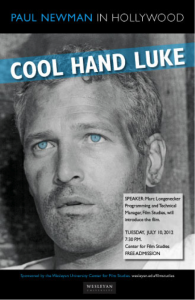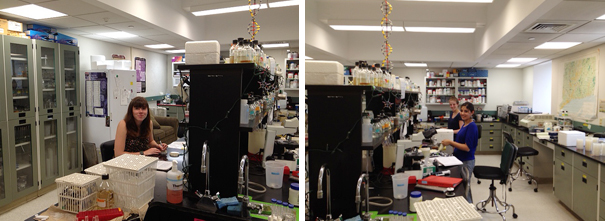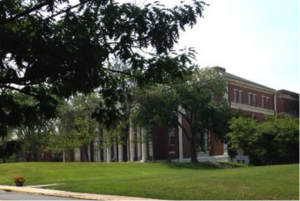Just before Reunion-Commencement weekend, I discussed changing some of our assumptions for budget planning with the Board of Trustees. This followed several months of discussions with faculty, students and staff on campus. After the February board meeting, I met in an open session with the Wesleyan Student Assembly, as did the treasurer and chair of the faculty in subsequent weeks. I also led a discussion of budget priorities in an affordability meeting with students, and reported on our economic planning to faculty at various meetings. Throughout the year, Joshua Boger and I have been discussing these ideas with alumni groups.
At the Board meeting we discussed planning the 2013-2014 budget with some new assumptions, which are described below. Our goals are to make Wesleyan more sustainable and affordable while maintaining our commitment to providing the very best liberal arts education. In the fall, I will continue discussions with the various members of the Wesleyan family. Together, we will chart a path that creates the conditions that will enable the university to thrive long into the future.
Over the last few years there has been a marked increase in attention given to college affordability. As the cost of higher education (both public and private) has continued to climb, and as the prospects for economic growth continue to dim, many have wondered about the value of an undergraduate degree.
Despite this disquiet about college generally, during this same period the number of students trying to gain admission to Wesleyan has increased dramatically. Thus far this year we’ve accepted fewer than 20% of the students who applied. Our total student charges will increase by 4.5% next year, reaching $58,000, which provides about 74% of the revenue it takes to run Wesleyan. Our financial aid budget is projected to increase by 15%, which means we will be allocating about $50 million to scholarships in 2012-2013.
For years, we have followed this same pattern: tuition increases well above inflation, and financial aid increases that go far beyond that. Although this works well enough for families from the highest and lowest income brackets – the former don’t worry about a budget and the latter don’t have to pay – we’re squeezing out middle and upper-middle class families. Furthermore, this budget model isn’t sustainable.
Over the past 20 years, the percentage of the tuition charges that goes to financial aid has risen steadily. In the past, Wesleyan has dealt with this issue by raising loan requirements (replacing grants with loans), and by taking more money out of the endowment (or just spending gifts rather than directing them to the endowment).
One way to change this dynamic is to cut costs, and we have substantially reduced expenses without undermining the academic core of the institution. In my first year as president in 2007-2008, we canceled almost $200 million in planned capital expenditures. We also made difficult decisions that resulted in $30 million in annual budget savings and increased revenues. We have improved energy efficiency and re-negotiated our health insurance coverage. We have also reduced our exposure to increases in our debt service costs while developing a program to begin repaying some of the debt the university incurred in the 1990s.
But I have also introduced measures that increase pressure on the operating budget. In 2008, we reduced loans for most students by about a third, which I still believe was the right thing to do given our claim to “meet full need.” And we also began placing a much higher percentage of the money we raised each year into the endowment. Our endowment per student is well below most of our peer schools, and it seemed vital to build Wesleyan’s economic foundation. While we do this, it is also essential to have funds to run a great university right now.
This year I have proposed a plan to trustees and the campus with three new components to make Wesleyan more affordable in ways that can be sustained. The first is to establish a “discount rate” that is as generous as possible, but that is also one we can afford. The discount rate refers to the amount of tuition the university does NOT collect, and it is the key measure for financial aid. For Wesleyan this means just under a third of our tuition charges will go to financial aid. This is approximately the percentage of the budget devoted to aid from 2000-2008.
We remain committed to meeting the full financial need of the students we enroll, and to do so without increasing required student indebtedness. This may mean that we will have to consider the capacity of some students to pay, as we do now with transfer and international students. We will read all applications without regard for the ability to pay, and we will be need-blind for as many students as possible. Currently we project this to be about 90% of each class (depending on the level of need). We could retain the label “need blind” by raising loan levels or shrinking grant packages – but this is the wrong thing to do. We feel it is crucial for the education of all our students to meet the full need of those who are enrolled without increasing their debt. As we raise more funds for the endowment, we will be able to build a more generous and sustainable financial aid program.
The second component of our affordability effort will be linking our tuition increases to the rate of inflation. We have already moved into the realm of the country’s most expensive colleges, and this is not a list on which we want to remain. Restraining tuition increases will require us to maintain our search for efficiencies while also investing in educational innovation across the curriculum.
The third component is to emphasize a three-year option for those families seeking a Wesleyan experience in a more economical form. We will help those students who choose to graduate in six semesters get the most out of their time on campus. The three-year option isn’t for everyone, but for those students who are prepared to develop their majors a little sooner, shorten their vacations by participating in our intensive Summer Sessions, and take advantage of the wealth of opportunities on campus, this more economical BA might be of genuine interest. Allowing for some summer expenses, families would still save about 20% from the total bill for an undergraduate degree.
I am convinced that these measures will enable us to preserve access to Wesleyan for capable, creative students while preserving the essential qualities (great faculty, diverse community, excellent facilities) that these students want. We are justly proud that so many who are so talented want to be part of the Wesleyan educational experience. With thoughtful planning, which will involve continued discussions with students, faculty and alumni, we can ensure that this remains the case for generations to come.





![photo[16]](https://roth.blogs.wesleyan.edu/files/2014/02/photo16-300x225.jpg)
![photo[12]](https://roth.blogs.wesleyan.edu/files/2014/02/photo12-300x225.jpg)


